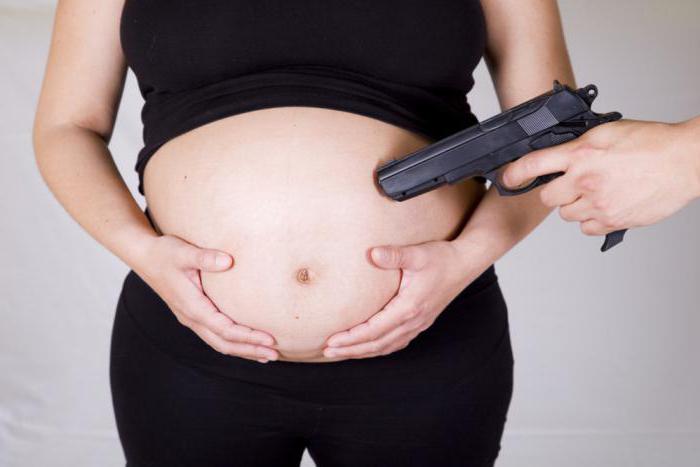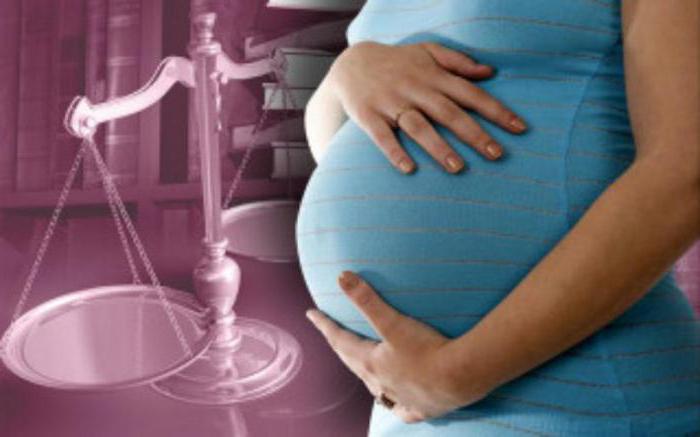Artificial abortion has been illegal for centuries. It was forbidden to believers by all religious denominations. Despite the fact that now there are many contraceptives, family institutions designed to deal with the problem, abortion is more common than ever. According to statistics, every third woman in Russia has done this procedure at least once. But this is only official data, they do not take into account the number of unregistered, criminal abortions.

general information
It is important to remember that illegal abortion is always a crime against a woman’s health. Any improper intervention in artisanal conditions is associated with a risk to life. What drives women who have decided on a criminal abortion? We will name only the most common reasons:
- lack of documents (passport, policy, etc.) that establish the identity of the woman;
- long gestation period;
- medical contraindications;
- sexually transmitted diseases, HIV, etc .;
- lack of a qualified medical specialist (in the case of remote settlements).
An abortion without violating the law can only be performed by a specialist with an appropriate medical education in a hospital, provided that the gestational age is not more than 12 weeks (22 weeks if there are social indications), and the woman has no contraindications for the procedure.
All other options for terminating a pregnancy may be declared illegal in accordance with Art. 123 of the Criminal Code.
What is the punishment?

According to the first part of this article, a crime is considered to be an abortion by a person who has not received medical higher education in the corresponding profile. For its commission, the law establishes the following types of alternative sanctions:
- up to 80 thousand rubles a fine, either in the equivalent of the wage or other wages of the perpetrator for a period of up to 6 months;
- up to 480 hours of compulsory work;
- up to 2 years of corrective labor.
If the termination of pregnancy, carried out illegally, entailed the death of a woman, or her health was harmed, defined as serious, part 3 of Art. 123 of the Criminal Code provides for two types of punishment: up to 5 years of forced labor or imprisonment of a criminal. In both cases, the imposition of an additional sanction is allowed: deprivation of the convicted right to work in a certain position, or to conduct specific professional activities for up to 3 years.
Object and objective side

Direct object according to Art. 123 CC is the health of a pregnant woman. In this case, she also acts as a victim.
The objective side is characterized by illegal abortion. According to the law, termination of pregnancy can be considered unlawful only when it is done by a person without an appropriate education (medical), that is, not an obstetrician and not a gynecological surgeon. T. about. interpretation of the first part of Art. 123 of the Criminal Code of the Russian Federation leads to the conclusion that the law connects the basis for criminal liability with the specialty of the offender, and not with the method of the operation.
An abortion by a doctor-obstetrician-gynecologist outside the medical institution, in unsanitary conditions, is not a criminal offense. Only in those cases when a woman’s health was harmed or her death occurred, the actions of a physician can be qualified under article 235. It implies responsibility for engaging in private medical practice in the absence of a license for this type of activity.
The composition of the qualified according to Art. 123 of the Criminal Code of the criminal act formal. It is considered completed from the moment the abortion was performed.
Subject and subjective side

The subject is special: a person over 16 years of age who does not have a higher medical education in the corresponding profile.
The subjective side of a simple corpus delicti under Art. 123 of the Criminal Code, the legislator defines as direct intent. In part 3 of the criminal law, qualifying features are fixed. In this case, the subjective side is two forms of guilt. Firstly, it is intent on abortion. As a motive can be self-interest, the desire to receive material reward. Secondly, there is negligence in relation to the consequences (serious harm to health or death).
If the abortion was carried out without the voluntary consent of the woman, the actions of the offender are qualified according to Art. 111 of the Criminal Code.